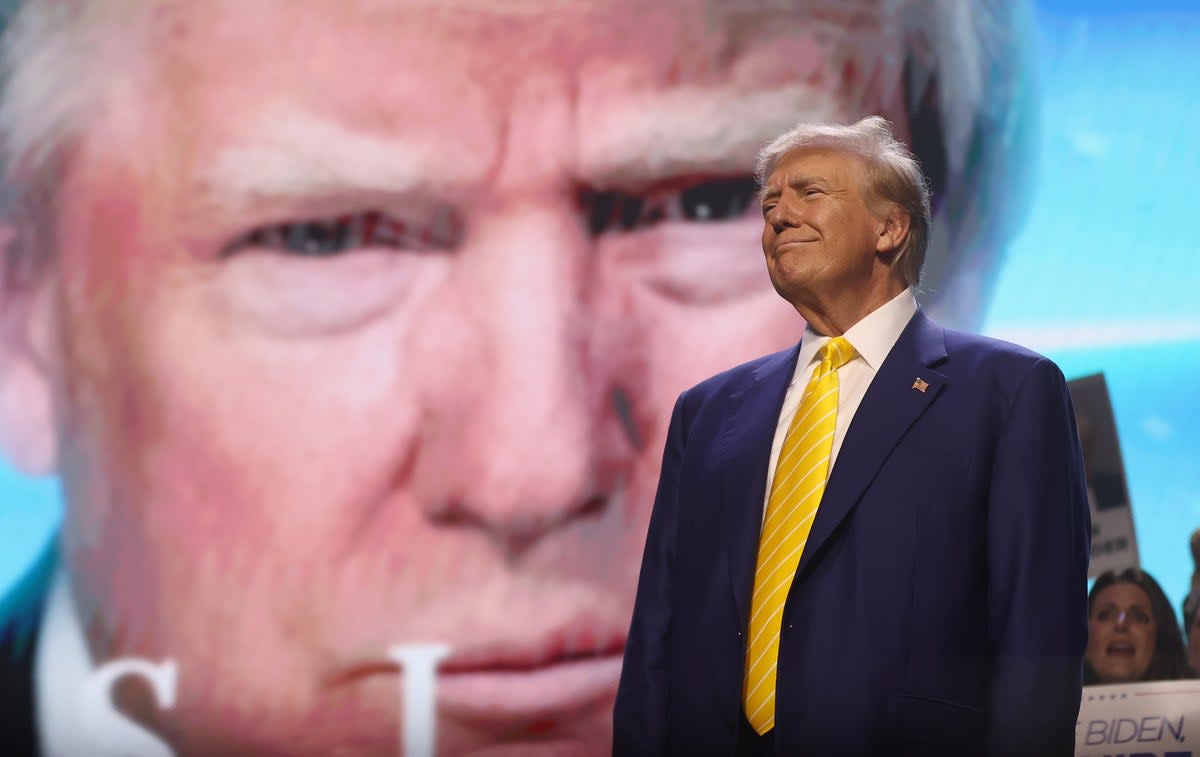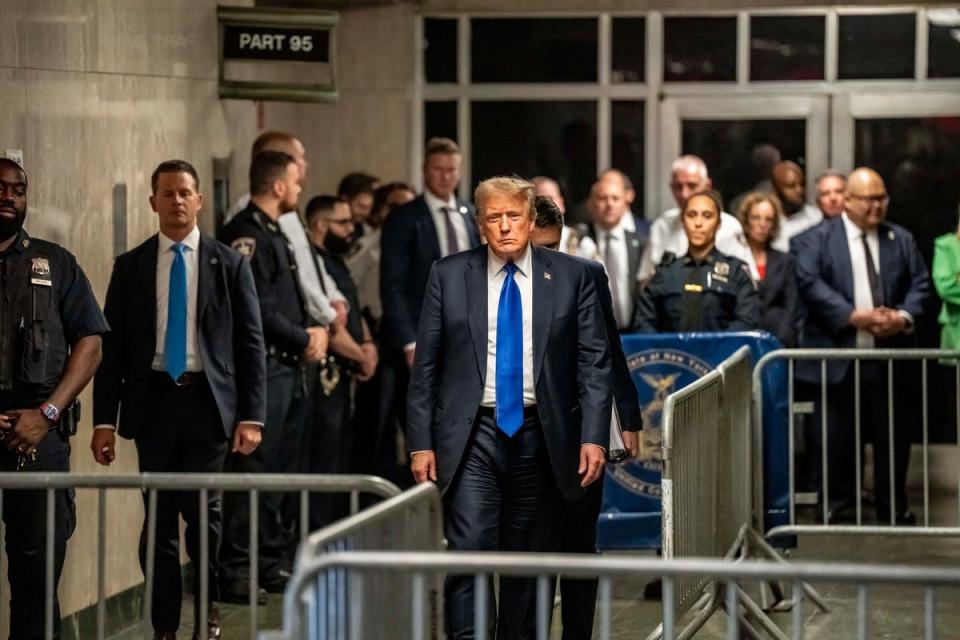He can be president but he can’t be a nurse: The jobs Trump can’t get with felony convictions

He cannot legally bartend in Florida, but he can be president of the United States. He can be legally denied certain public housing, but he could soon live at the White House. And he cannot legally possess a firearm in any state, but he could soon command the country’s nuclear arsenal.
Donald Trump joined the nearly 20 million Americans with felony convictions when a jury in New York found him guilty of 34 counts of falsifying business records in the first degree on May 30.
But unlike the millions of Americans re-entering society after conviction and incarcerations, who face countless barriers to decent jobs, housing, healthcare, childcare, and the ability to vote, among other hurdles, Trump can rely on his immense wealth, influence and potential path to the presidency to avoid them.
It is unlikely he will face any jailtime (Manhattan prosecutors are not seeking any), and if he wins the 2024 presidential election, the terms of a probationary sentence – the most likely outcome – could be jammed up by his challenges in federal courts to allow him to do the kinds of things one would need to do as president, like travel out of state.
“It’s a completely different world,” according to Wanda Bertram, communications specialist with the nonpartisan nonprofit research organization Prison Policy Initiative.
“He’s not even going to think about the kind of barriers that people who are coming out of prison are going to face,” she tells The Independent.
“Donald Trump is going to be able to avoid not just the immediate consequences of a felony conviction, as they apply to most people, but also the downstream consequences,” she says. “This thing that tends to happen to people where, because of their felony conviction, they can’t get a job, they can’t get housing, they can’t get healthcare, and then, because of the combination of those things, then they’re reincarcerated or convicted for something else.”

The heaps of contradictions facing Trump’s post-conviction life – can’t have a gun but can control the nation’s military, can’t hold certain occupational licenses but can be president, can’t vote in certain states but can be the thing people are voting for – were probably not the dilemmas that the nation’s founders considered.
But they expose the wild gaps between a powerful billionaire navigating the criminal justice system and the rest of us.
Nearly four out of every 10 people in state prison were jobless in the month leading up to their arrest, according the Prison Policy Initiative. Black people (46 per cent) and women (53 per cent) in state prisons were more likely to have not had a job in that time, the group found.
More than half a million Americans return to their communities each year after incarceration, but most face job rejection and long streaks of unemployment thanks to discriminatory hiring practices, occupational license restrictions and short-term and unstable, low-paying positions.
“If you’re Donald Trump, you can kind of make your own work,” Bertram says. “That’s the privilege of having a lot of money – you can gin up some new venture.”
Many state licensing laws include blanket disqualifications for people with criminal records, meaning that state boards don’t have to scrutinize applications or think twice about revoking licenses if they come from a person with certain felony convictions.
Other state boards may have more discretion to grant licenses to applicants with a criminal conviction, but for millions of people with records, “they’re just one more applicant,” Bertram says.
“They’re just a number,” she says. “They can try to appeal the decision, and they don’t hear anything. … Trump and so many billionaires and millionaires have so many other avenues of recourse to try to pull strings. … If you’re formerly incarcerated, you probably don’t have access to even the kind of legal assistance that might be able to help you overcome this.”
Trump can be president again, but state-level occupational licensing restrictions would block any other person with felony convictions from a range of jobs across the country.
Some of those restrictions, according to the Prison Policy Initiative and the National Conference of State Legislatures: Trump can’t work for a casino in Illinois or a vet in Indiana, in pest control in North Carolina, he can’t sell a car in Mississippi, or work in any healthcare setting in Virginia.
Even in New York, if he wanted a real estate brokers license, he would need permission from the secretary of state.
In Florida, he can’t be a firefighter or legally tend bar at his Mar-a-Lago compound; Florida law prohibits bars from employing bartenders who have been convicted of a felony within five years.
And unlike many people with felony convictions, Trump will still probably be able to vote for himself in the upcoming election, as long as he is not behind bars.
He can still vote from New York or his home in Florida if he is on probation.
Voting laws in Florida – where Trump is registered to vote – defer to the rules in the state where a person was convicted. The state’s Republican Governor Ron DeSantis even announced he would personally ensure Trump could vote, despite rolling back voting rights for thousands of Florida residents with felony convictions.
In 2018, Florida voters overwhelmingly supported a measure to restore voting rights for most Floridians with convictions who had completed the terms of their sentence. But in 2019, DeSantis signed a law mandating that certain people with felony convictions can only regain their voting rights after they pay all related fines, fees and restitution.
“That would be easy for [Trump] to do,” Bertram says. “For most people who are coming out of prison, in Florida or elsewhere, they are saddled with a lot of criminal justice-related fees that are hard for them to pay off because they get in the way of other things that they need to do to get back on their feet right. … There’s a magnitude of difference between the fines that he’s paying, or the amount of money that he has, versus the amount of money that the average formerly incarcerated person or person with a felony conviction has and how much money they have to pay.”

 Yahoo News
Yahoo News 
